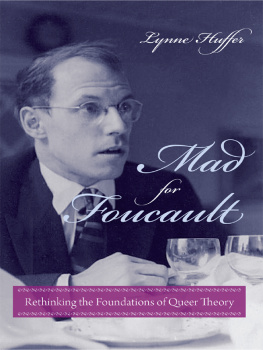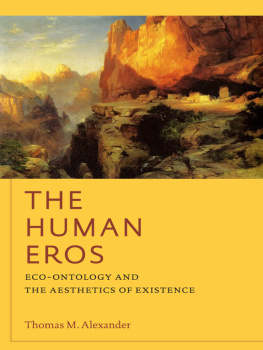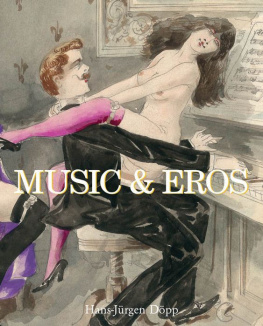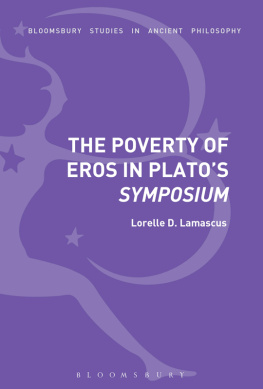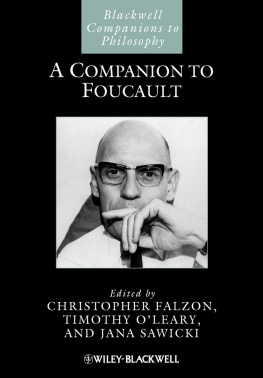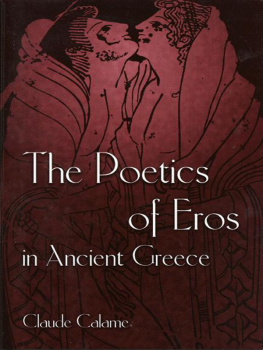Lynne Huffer - Foucaults Strange Eros
Here you can read online Lynne Huffer - Foucaults Strange Eros full text of the book (entire story) in english for free. Download pdf and epub, get meaning, cover and reviews about this ebook. publisher: Columbia University Press, genre: Romance novel. Description of the work, (preface) as well as reviews are available. Best literature library LitArk.com created for fans of good reading and offers a wide selection of genres:
Romance novel
Science fiction
Adventure
Detective
Science
History
Home and family
Prose
Art
Politics
Computer
Non-fiction
Religion
Business
Children
Humor
Choose a favorite category and find really read worthwhile books. Enjoy immersion in the world of imagination, feel the emotions of the characters or learn something new for yourself, make an fascinating discovery.

- Book:Foucaults Strange Eros
- Author:
- Publisher:Columbia University Press
- Genre:
- Rating:4 / 5
- Favourites:Add to favourites
- Your mark:
- 80
- 1
- 2
- 3
- 4
- 5
Foucaults Strange Eros: summary, description and annotation
We offer to read an annotation, description, summary or preface (depends on what the author of the book "Foucaults Strange Eros" wrote himself). If you haven't found the necessary information about the book — write in the comments, we will try to find it.
Foucaults Strange Eros — read online for free the complete book (whole text) full work
Below is the text of the book, divided by pages. System saving the place of the last page read, allows you to conveniently read the book "Foucaults Strange Eros" online for free, without having to search again every time where you left off. Put a bookmark, and you can go to the page where you finished reading at any time.
Font size:
Interval:
Bookmark:
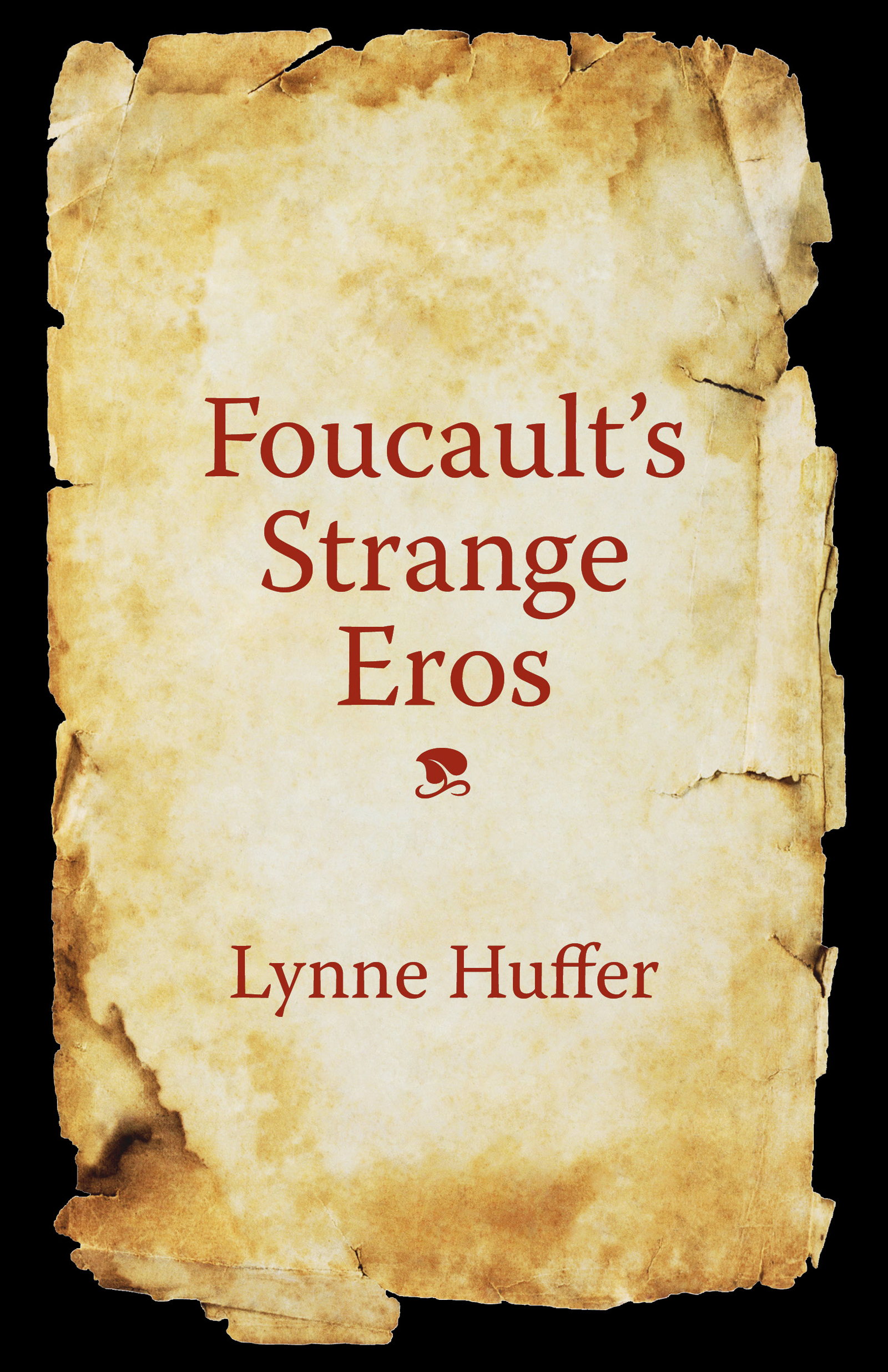
FOUCAULTS STRANGE EROS
FOUCAULTS STRANGE EROS
LYNNE HUFFER
Columbia University Press New York

Columbia University Press
Publishers Since 1893
New York Chichester, West Sussex
cup.columbia.edu
Copyright 2020 Columbia University Press
All rights reserved
E-ISBN 978-0-231-55201-1
Library of Congress Cataloging-in-Publication Data
Names: Huffer, Lynne, 1960 author.
Title: Foucaults strange eros / Lynne Huffer.
Description: New York, New York : Columbia University Press, 2020. | Includes bibliographical references and index.
Identifiers: LCCN 2019051891 (print) | LCCN 2019051892 (ebook) | ISBN 9780231197144 (cloth) | ISBN 9780231197151 (paperback)
Subjects: LCSH: Foucault, Michel, 19261984.
Classification: LCC B2430.F724 H84 2020 (print) | LCC B2430.F724 (ebook) | DDC 194dc23
LC record available at https://lccn.loc.gov/2019051891
LC ebook record available at https://lccn.loc.gov/2019051892
A Columbia University Press E-book.
CUP would be pleased to hear about your reading experience with this e-book at .
Cover design: Milenda Nan Ok Lee
Cover image: Shutterstock
For Tamara, my beloved

Ne te courbe que pour aimer.
Bow only to love.
Ren Char
I came to think of translating as a room, not exactly an unknown room, where one gropes for the light switch. Prowling the meanings of a word, prowling the history of a person, no use expecting a flood of light. Human words have no main switch. But all those little kidnaps in the dark. And then the luminous, big, shivering, discandied, unrepentant, barking web of them that hangs in your mind when you turn back to the page you were trying to translate.
Anne Carson, Nox
To prowl , from Middle English prollen , to move about in search of something; see also to rave , to show signs of madness or delirium, from Old French raver , variant of resver , to dream, to wander here and there, to prowl.
Online Etymology Dictionary
I workedgropingly.
Michel Foucault, History of Sexuality, volume 2
W hat is this eros that prowls my Foucault? I keep workinggropingly. All those little kidnaps in the dark. The web of words that hangs in my mind. Foucault is a page Im still trying to translate. Or better: a room, not exactly an unknown room, where I grope for the light switch. I move about in search of something. Wandering here and therea ship of fools, the errant fragment of an erotic artI rave. Prowling Foucault, I prowl eros, no use expecting a flood of light.
T his book prowls Foucault, gropingly, translating him as a poet of unreason. The third installment of a trilogy on a thinkers erotic method, Foucaults Strange Eros concludes ten years of raving in the Old French sense: wandering here and there inside a room called Foucault. Tracking eros inside that room, from Mad for Foucault (2010) to Are the Lips a Grave? (2013), this raving has brought me here to this book. Not a flood of light inside the room, but an eros that flashes up, then disappears into strangeness. That strangeness translates as Foucaults ethopoietic method: an ethics of eros as a poetics of unreason.
Distinct from madness, unreason is the term Foucault offers in History of Madness (1961) for a strange murmuring background noise, or bruit de fond, out of which reason extracts the language of madness and turns the mad into objects of science. The murmur of eros as the outside invites a focus on how Foucaults writing opens toward the erosion of the interiority of the thinking subject.
That erosion has significant implications for the relation between modern subjectivation and the confinement of thinking within the disciplinary university and, more broadly, a contemporary mode of intelligibility that manages populations within algorithmic plots of the normal curve. Those committed to speaking and thinking within such disciplinary and regulatory forms of confinement require new resources for speaking and thinking. How might my speech counter the momentum of speechs appropriation into ready-made soundbites of inanity and violence? How can I deflect the appropriation of my speech? How might my speech open thought to its outside? This book contends that Foucaults erotic genealogical method inspires a kind of speech that can free thought from what it silently thinks, and so enable it to think differently. This thought-freeing speech comes about indirectly, not through the intention of any speaker, but through a mode of speaking that erodes the subject of speech. With that erosion, speech exposes the interiority of I think to the outside. This thought of the outside gestures toward an ethics: not a sexual ethics exactly, but, more strangely, an ethics of eros.
In Mad for Foucault, the relation between unreason and madness in History of Madness first offered me a way to describe an eros I heard through Foucault. As Audre Lorde reminds us in her classic essay Uses of the Erotic: The Erotic as Power (1978), in modernity we tend to conflate eros with sexuality. Just as unreason is the condition for the possibility of madness, so too eros is the strange murmuring background noise out of which sexology extracts the language of sexuality and produces sexual subjects as objects of knowledge.
The ethics that emerges out of this eros-sexuality relation is strange. Unlike the garrulous sexual ethics Foucault describes as an incitement to speak in History of Sexuality, volume 1 (1976), this ethics of eros plunges speaking subjects into the dissolution of their speech. As sexual subjects, we cannot hear eros except as a murmur that withdraws from us. Unlike sexuality, with its captured, specified, proliferating perversions, eros dissipates the moment someonea doctor, a scientist, a gender studies professorattempts to pin it down for knowledge. I in my reason extract voices out of that murmur, capturing eros as sexualized forms of speech, from the diagnostic vocabulary of scientia sexualis to the sentimental strains of romantic discourse to the kinky confessions of the queer.
In Mad for Foucault, I engaged this eros-sexuality relation through the lens of Anglo-American queer theory. Rereading History of Madness in light of queer theorys almost exclusive reliance on the later History of Sexuality, volume 1, I argued for the importance of History of Madness as an antifoundationalist source for queer thinking. In making that claim, I read History of Madness as a genealogy of sex, where sex emerged as a modern object of knowledge within a grid that linked rationality with morality. Looking back at History of Madness from the perspective of History of Sexuality, volume 1, Foucault wrote that what was once called madness is now what makes us intelligible to ourselves as modern sexual subjects. We have arrived at the point, Foucault asserts, where we expect our intelligibility to come from what was for many centuries thought of as madness. Hence the importance we ascribe to it, the care we take to know it.
Font size:
Interval:
Bookmark:
Similar books «Foucaults Strange Eros»
Look at similar books to Foucaults Strange Eros. We have selected literature similar in name and meaning in the hope of providing readers with more options to find new, interesting, not yet read works.
Discussion, reviews of the book Foucaults Strange Eros and just readers' own opinions. Leave your comments, write what you think about the work, its meaning or the main characters. Specify what exactly you liked and what you didn't like, and why you think so.

